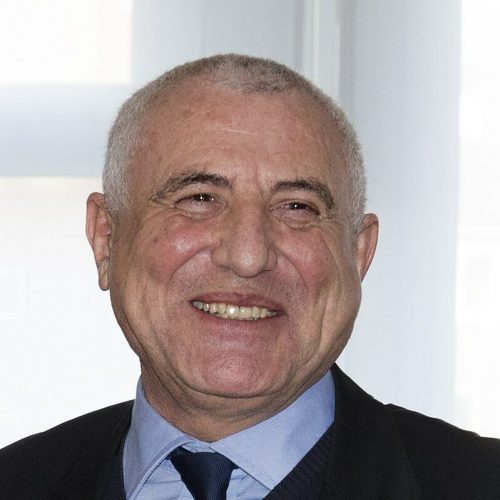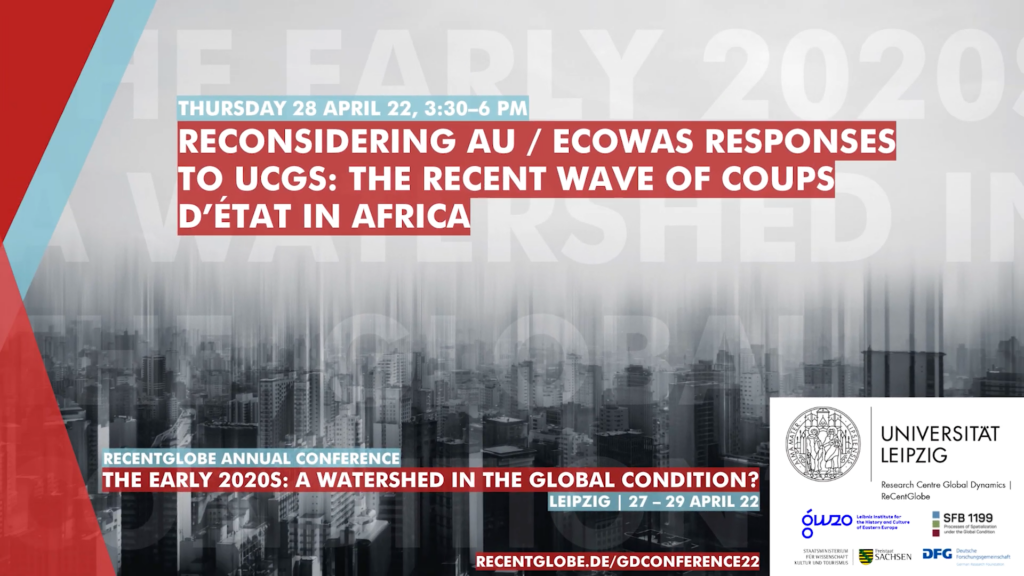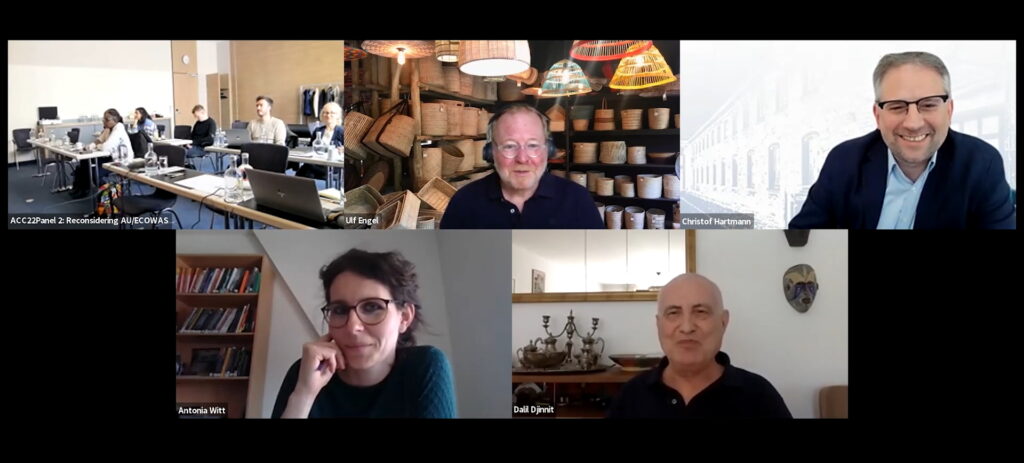Since August 2020 the African continent has witnessed serious setbacks in its collective efforts to strengthen principles of democratic rule, good governance, and human rights, especially in the West African region. Successful coups d’état were staged in Burkina Faso, Chad, Guinea, and twice in Mali. Military efforts to seize power failed in Benin, the Central African Republic, Guinea-Bissau, and Niger, while Sudan saw both a failed and a successful coup. The African Union and the relevant Regional Economic Communities (RECs) invoked their respective policy scripts on so-called unconstitutional changes of government (UCGs) and suspended these countries from their organizations. However, in none of these cases did a return to constitutional order occurred. The newly founded ANCIP project took this development as a call to initiate a roundtable at the ReCentGlobe annual conference and discuss the policy options at hand.
Besides the three principal investigators of the ANCIP project – Ulf Engel, Antonia Witt and Christof Hartmann –, Ambassador Said Djinnit took part. The latter played a key role in the reforms transforming the OAU into the AU, has more than 30 years of experience in intergovernmental organisations, and served as the first commissioner for peace and security of the AU. Based on this career and first-hand knowledge, the Algerian career diplomat shared his profound insights into the management of UCGs and the challenges they bring with them.
After a short introduction of the panelists, the recent state of affairs as well as a concise history of UCGs in Africa, provided by Ulf Engel, Ambassador Said Djinnit gave an overview on the policies concerning UCGs by the OAU and the AU and addressed possible revisions, which could improve the legal framework. These included the extension of the current definition of UCGs to explicitly include the manipulation of constitution to retain power and the dynastic succession of power and a limit on the terms in office.

Ambassador Said Djinnit currently serves as special advisor at ACCORD (African Centre for the Constructive Resolution of Disputes). (Ministerie van Buitenlandse Zaken, CC BY-SA 2.0 )



